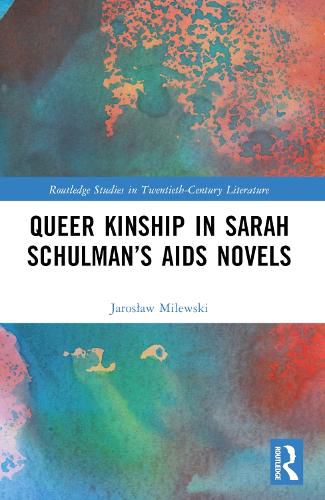Readings Newsletter
Become a Readings Member to make your shopping experience even easier.
Sign in or sign up for free!
You’re not far away from qualifying for FREE standard shipping within Australia
You’ve qualified for FREE standard shipping within Australia
The cart is loading…






Queer Kinship in Sarah Schulman's AIDS Novels is the first book to extensively discuss the works of Sarah Schulman, a journalist, activist and globally recognized novelist. This research monograph juxtaposes the works about the AIDS epidemic which were well-received by the mainstream America with Schulman's own output as a "bard of AIDS burnout," in the words of Edmund White. In contrast with the prevailing representations of the epidemic, her works emphasize the importance of queer kinship, chosen families and AIDS activist groups that fall outside of the heteronorm. Bearing witness to these voluntary collectivities means also surviving the traumatizing experience of ongoing, repeated death and refusing the idea of an easy solution to the crisis. The monograph tracks the tension between the dominant narratives about the epidemic and those articulated from the excluded positions, arguing that Schulman reformulates queer kinship as the locus of social change.
$9.00 standard shipping within Australia
FREE standard shipping within Australia for orders over $100.00
Express & International shipping calculated at checkout
Queer Kinship in Sarah Schulman's AIDS Novels is the first book to extensively discuss the works of Sarah Schulman, a journalist, activist and globally recognized novelist. This research monograph juxtaposes the works about the AIDS epidemic which were well-received by the mainstream America with Schulman's own output as a "bard of AIDS burnout," in the words of Edmund White. In contrast with the prevailing representations of the epidemic, her works emphasize the importance of queer kinship, chosen families and AIDS activist groups that fall outside of the heteronorm. Bearing witness to these voluntary collectivities means also surviving the traumatizing experience of ongoing, repeated death and refusing the idea of an easy solution to the crisis. The monograph tracks the tension between the dominant narratives about the epidemic and those articulated from the excluded positions, arguing that Schulman reformulates queer kinship as the locus of social change.